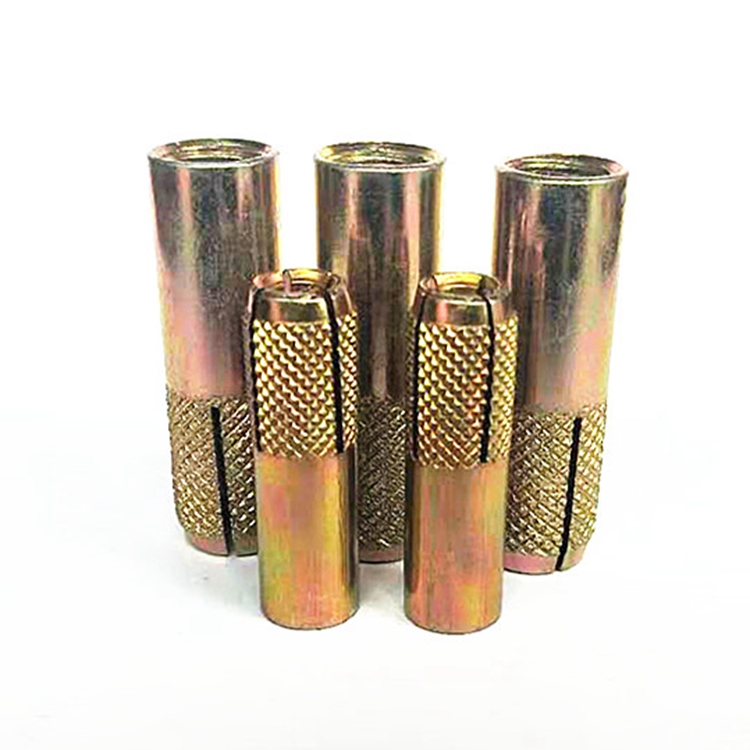Coarse Thread Hex Nut Manufacturers for Reliable Fastening Solutions
ม.ค. . 01, 2025 01:49 Back to list
Coarse Thread Hex Nut Manufacturers for Reliable Fastening Solutions
Understanding Coarse Thread Hex Nuts and Their Manufacturing Process
Coarse thread hex nuts are essential components widely used in various mechanical and structural applications. These nuts, characterized by their hexagonal shape and coarse threads, play a crucial role in fastening systems, securing bolts, and maintaining the integrity of mechanical assemblies. The manufacturing process of coarse thread hex nuts is critical to ensure their reliability, durability, and performance in different environments.
What Are Coarse Thread Hex Nuts?
Hex nuts are fasteners with a hexagonal shape that allows them to be easily tightened or loosened using standard wrenches. The coarse thread refers to the pitch of the threads—coarse threads have a larger distance between each thread compared to fine threads. This makes coarse thread hex nuts particularly suitable for applications involving rapid assembly and disassembly, as they can be adjusted quickly without the need for significantly precise alignment.
These nuts are available in various materials, including steel, stainless steel, brass, and plastic, each offering different properties suited to specific applications. Zinc plating and other coatings are often applied to enhance corrosion resistance, particularly for applications in harsh environments.
The Manufacturing Process
The production of coarse thread hex nuts involves several key steps
1. Material Selection The process begins with selecting the appropriate raw material. For most hex nuts, manufacturers typically use steel alloys due to their strength and versatility. Stainless steel may be chosen for environments where corrosion resistance is essential.
2. Cold Heading This process involves shaping the raw material into a rough hexagonal form using a cold heading machine. The metal is placed in a heading die, where it is shaped by a series of punches that create the initial hex shape. Cold heading is an efficient process that increases the strength of the metal through work hardening.
coarse thread hex nut factories

3. Thread Cutting Once the basic shape is formed, the next step is to cut the threads. This can be achieved through various methods such as tapping or rolling. Tapping involves cutting threads directly into the hex nuts using a die, while thread rolling compresses the material to form threads without removing any material, leading to stronger threads due to the cold-forming process.
4. Heat Treatment Post-threading, the hex nuts may undergo heat treatment to enhance their properties. This process can improve hardness, tensile strength, and overall durability. Heat treatments vary depending on the material and desired properties.
5. Surface Treatment To improve resistance to corrosion and wear, hex nuts often undergo surface treatments. Common methods include galvanizing, passivation (for stainless steel), and coating with protective paints or polymers. This step is critical for ensuring that the nuts will perform effectively in their intended environments.
6. Quality Control After the manufacturing process, quality control checks are vital. This includes testing the nuts for dimensional accuracy, thread integrity, and material properties. Manufacturers often utilize advanced inspection techniques like computer-aided design (CAD) and coordinate measuring machines (CMM) to ensure compliance with industry standards.
7. Packaging and Distribution Finally, the finished hex nuts are packaged and distributed to various industries, including automotive, construction, and machinery. Proper packaging is essential to protect the nuts during transport and storage.
Applications
Coarse thread hex nuts find applications across diverse industries. In the automotive sector, they are used to secure various components, ensuring that assemblies remain intact during operation. In construction, they are utilized in structural connections, anchoring bolts, and heavy machinery applications where reliability is paramount. Additionally, coarse thread hex nuts are frequently employed in manufacturing settings, ensuring that machinery and equipment operate safely and effectively.
Conclusion
The manufacturing of coarse thread hex nuts is a meticulous process that combines advanced technology and stringent quality control measures to produce reliable fastening solutions. As industries continue to evolve, the demand for high-quality hex nuts will remain steadfast, highlighting the importance of ongoing innovation and improvement in manufacturing practices. Understanding the production journey of these vital components underscores their significance in a myriad of applications, making them an indispensable part of modern engineering and construction.
Latest news
-
Reliable Axle Nuts Supplier | High-Quality Automotive Parts
NewsAug.19,2025
-
Premium Wire Bolts Suppliers | Durable & Reliable Fasteners
NewsAug.18,2025
-
Leading Metric Wood Screw Companies & Manufacturers
NewsAug.17,2025
-
Top Wire Bolts Suppliers - Quality & Durable Fasteners
NewsAug.15,2025
-
Trusted Wire Bolts Company | Quality Fasteners Supplier
NewsAug.14,2025
-
Reliable Wire Bolts Suppliers & Manufacturers for Global Needs
NewsAug.13,2025
